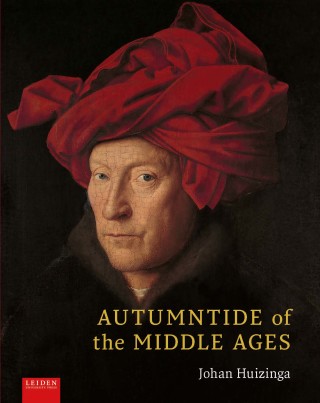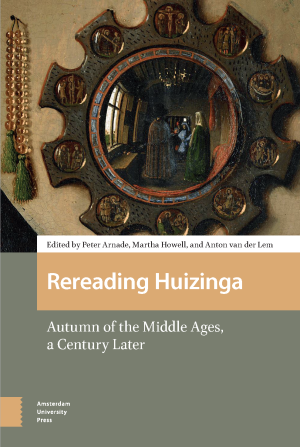"Rereading Huizinga offers the reader much more than an analysis of the reasons why Autumn is considered to be one of the masterpieces of Western medieval scholarship or why it was ahead of its time. [...] Historians of various stripes will find much of use and interest in this rich volume."
- Koen B. Tanghe, Canadian Journal of Netherlandic Studies 41.1 (2021)
"These are two very enlightening collections of essays that deliver state of the art observations not only on Autumn but also more generally on Burgundian studies. The volumes are very useful companions for students, which will help them to read Huizinga with an informed view of important scholarly trends and research results in their field of study. They will also appeal to researchers, who will find in them a nuanced and fair assessment of the legacy, or rather, the multiple legacies, left by this work since its first publication."
- Katell Lavéant, Utrecht University, joint review in BMGN - Low Countries Historical Review, Volume 136 (2021)
"Rereading Huizinga allows readers to examine once more Huizinga’s text, taking a fresh look at Autumn’s contributions to the fields of history, art, and literature. [...] This volume is an important reconsideration of a key publication on late medieval history, of interest to scholars in a variety of disciplines as well as time periods."
- Elizabeth Rice Mattison, EuropeNow Journal, July 2021
"[The] temptation [to taste the forbidden fruit of Herfsttij] is unlikely to be resisted by readers of Re-reading Huizinga: Autumn of the Middle Ages a Century Later. The fruit is tasted, criticised—sometimes strenuously—and appraised in this wide-ranging re-appraisal of Herfsttij and its author. This collection of important essays originated in an international conference held in New York in November 1996, the year in which the new English translation of Herfsttij by Payton and Mammitzsch appeared. An Introduction by two of the editors, Peter Arnade and Martha Howell, outlines a major purpose of the volume: to try to explain how and why Herfsttij ‘remains one of the masterpieces of Western historical scholarship’."
- Malcolm Vale, St John’s College, Oxford, UK, English Historical Review, July 2021

